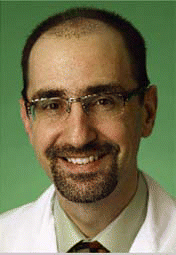SAN DIEGO-Perioperative steroids have a clinically significant impact on the technical aspects of surgery and improve objective surgical outcomes in the short and medium term, according to research and a new scoring system presented April 26 by Triological Society Mosher Award recipient Erin D. Wright, MD, FRCSC, at the Combined Otolaryngology Spring Meetings.
Dr. Wright, Director of the Alberta Sinus Centre and Associate Professor of Otolaryngology at the University of Alberta in Edmonton, Canada, told audience members that patients receiving systemic steroids preoperatively for five days and postoperatively for nine days had significantly healthier cavities in the short (two weeks) and medium (six months) terms. In addition, he said the novel Peri-Operative Sinus Endoscopy (POSE) scoring system he developed correlates strongly with the Lund-Kennedy Endoscopy Scale (LKES) but seems to have enhanced responsiveness to change, data richness, and face validity.
The POSE scoring system includes data collection on the middle turbinate and middle meatus, two areas always addressed in endoscopic sinus surgery (ESS) and of great importance in surgical outcomes. It also assesses in greater detail the endoscopic appearance of the ethmoid cavity by using a broader scoring scheme that assesses the progression from edema to polypoid change, and finally to frank polyps. It addition, POSE has the ability to include secondary sinuses such as the frontal and sphenoid sinus.
If necessary, a conversion equation has been developed to permit comparison between patients having a different extent of surgery, Dr. Wright said.
I found it quite simple to use and the data could be collected efficiently in the outpatient clinical setting, he said. The POSE scoring system shows promise as an objective outcome measure for future studies and merits further validation studies, such as tests with larger numbers in a multicenter assessment.
Evidence-Based Analysis
Dr. Wright said that the motivation for his study was to provide evidence-based practice and analysis in clinical rhinology. Much of current practice, he said, is based on expert opinion or anecdotal evidence. I was hoping to critically assess what was previously the practice of some and make it accessible to all so that each clinician could view the evidence and decide for his or herself what is the best practice for patients.
Once he started the study, he realized that we may be able to develop a better tool for assessing objective (i.e., endoscopic) outcomes in rhinosinusitis. This was the motivation for developing the POSE score.
I believe that this is important since objective endoscopic findings have been shown to be a significant predictor of recidivism and will precede a worsening of symptoms, he said.
Design of the Study
Patients selected for the study had failed maximal medical therapy and were scheduled to undergo ESS. They were randomized to receive either 30 mg of prednisone or placebo for five days preoperatively and nine days postoperatively. In addition to using the Lund-McKay staging system to collect operative and baseline clinical data, both the LKES and Dr. Wright’s POSE scale were used to collect data regarding mucosal health, the technical difficulty of surgery, and endoscopic readings. Data were collected at two weeks, one month, three months, and six months postoperatively.
A sample size of 24 was calculated to detect a clinically relevant difference between groups of 40 percent, Dr. Wright said, noting that routine statistical comparisons were performed as well as repeated measures analysis of variance with Bonferroni adjustment due to the multiple comparisons performed.
To address the study’s secondary objective of POSE validation, comparisons were performed between the POSE and LKES including assessment of sensitivity to change, correlation between the two scales, and correlation with symptoms scores.
Operative data demonstrated a significantly higher percentage of severely inflamed sinonasal mucosa in patients not pretreated with systemic steroids, which was associated with technically more difficult surgery in the estimation of the operating surgeon, Dr. Wright said.
Support for Systemic Steroids
In presenting his conclusions on the study, Dr. Wright told the COSM audience that in addition to supporting the practice of administering preoperative systemic steroids to patients, in the practice of surgeons who provide intensive postoperative care post-ESS including debridement and medical therapy based on the endoscopic findings, there is evidence to support administering systemic steroids in the postoperative period.
About the Awardee
Dr. Wright traveled to COSM from his new position at the University of Alberta. He said the emphases of his new sinus center are clinical (comprehensive care of the sinus patient, minimally invasive anterior skull base surgery); educational (training of residents and fellows); and research. His future career plans resolve around development of the centre into a world-class, multifaceted entity where we provide top-notch clinical care and education, as well as make the discoveries that will lead to enhancements in both, he said.
My main focus has previously been clinical work and clinical research, Dr. Wright continued. I spend about 70 percent of my time in my clinical work and about 30 percent in academic pursuits, including research. I enjoy the variety and the excitement of potential discovery and would not want to spend less time than that on the research.
The Mosher Award is named for Harris P. Mosher and is presented for outstanding clinical research. After acceptance by the Triological Society, the paper may be published in The Laryngoscope.
©2007 The Triological Society

Leave a Reply